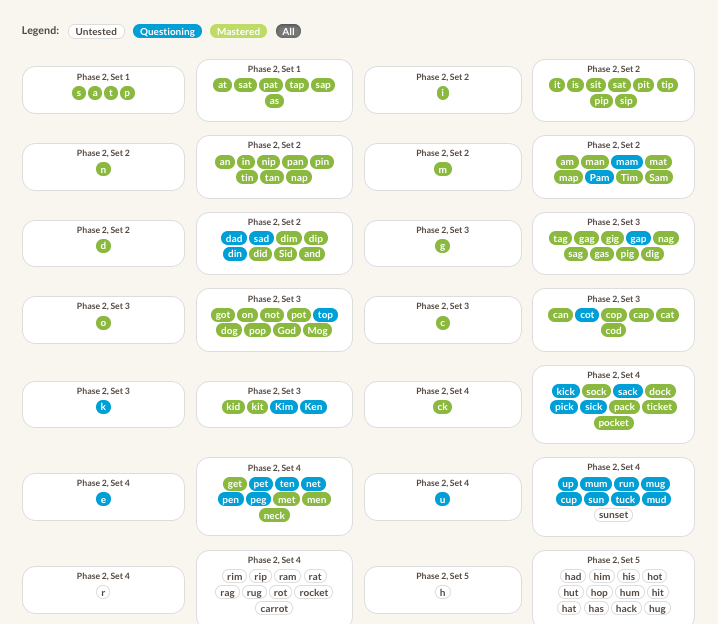
In England, phonics was piloted across 18 local authorities in 2005 and was mandated from 2012 with the introduction of the phonics screening check. Today, the % of children meeting the 'expected standard' as measured by this check is 79% for boys and 86% for girls - and drops to just 70% for children qualifying for free school meals (a common proxy for children from disadvantaged backgrounds).

Our view of phonics (and more widely, decoding) is that it represents one key aspect of learning to read. Good decoding facilitates strong reading skills. We don't believe decoding is the first step in learning to read, however. For example, the foundations of a broad vocabulary are put in place orally, through conversation and verbal exchanges.
But back to phonics - with so many children not making expected progress in England's schools, perhaps there is scope for a supplementary resource to support children and teachers - One that might help every child to decode well.
To explore this idea, we built a very simple adaptive learning programme, Zip, that can identify individual gaps in a pupil's 'phonics knowledge' and support them in 'mastering' letter-sound correspondences.

The programme was trialed as part of a DfE-funded study with promising results. We're delighted to open up Zip to schools who can now trial the programme and assess it to find out whether it might help increase the number of their pupils who are secure in their decoding at an earlier age. Feedback so far has been very positive.
Delighted with the progress of nearly 90 pupils using Readingwise ZIP in Term 1, 48% have demonstrated an increase in reading ability in only 8 weeks! Looking forward to seeing the results after the programme is completed! @ReadingWise @WalkerRoadSch #readingisfun
— Walker Road PEF Interventions (@PefRoad) October 28, 2019









